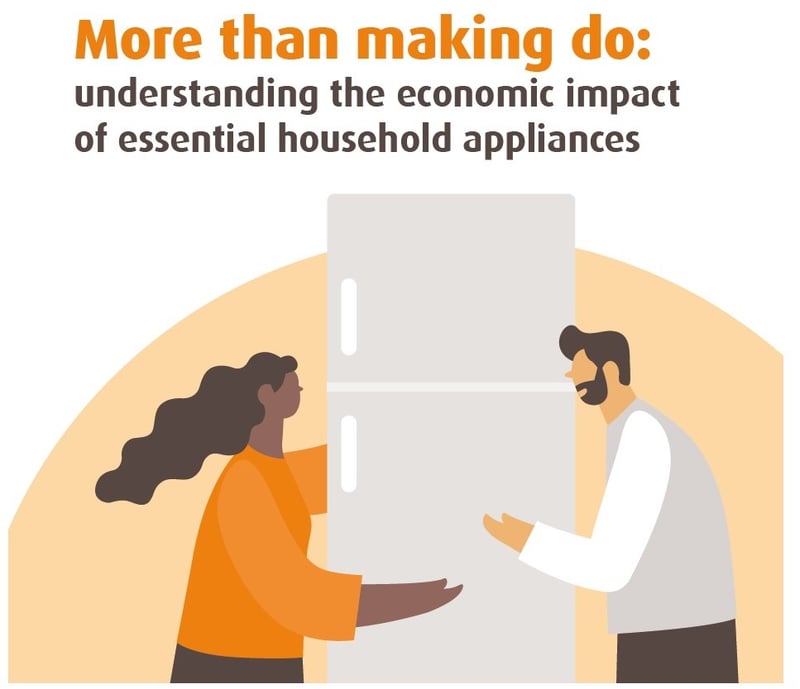Fusion21 Foundation invests in powerful new research report which reveals scale of appliance poverty and estimates impact of charity grants

The Fusion21 Foundation is passionate about funding research that creates new solutions to ongoing societal challenges, and we’re delighted to have invested in a brand-new research report, launched today.
An estimated 1.2 million people in the UK today are living in appliance poverty – without at least a washing machine or fridge-freezer in their homes, according to the new study.
Research by Pro Bono Economics (PBE), commissioned by a collaboration of the Fusion21 Foundation, the Association of Charitable Organisations (ACO) and ten grant-making organisations, has found that around 480,000 low-income households across the country, equating to close to 1.2 million adults and children, are missing at least one of the household appliances (washing machine or fridge-freezer) that millions take for granted in maintaining their health and hygiene. Of these, 53,000 households, or 130,000 people, are living without both a washing machine and a fridge/freezer.
Being in appliance poverty – living without an essential large household appliance such as a washing machine or a fridge-freezer – can harm people’s finances, physical health and emotional health, thereby lowering their wellbeing. This is especially the case for people on low incomes, those experiencing deprivation, and those with additional needs.
The issue has become more pressing amid the cost of living crisis as levels of wages and benefits have failed to keep up with the rising price of goods.
Benevolent charities provide funding to support everyday spending, including the cost of essential appliances, to those individuals who are eligible. They are a vital source of support for those on low incomes and those with complex needs, including people ineligible or unable to access local authority financial hardship grants.
Having both large household appliances is estimated to boost a person’s wellbeing by 0.4 points (out of 10) on the ONS life satisfaction scale. By following the Treasury’s wellbeing evaluation guidance, PBE calculates this wellbeing boost has a value of £7,200 per adult for each year lived with the appliances.
Consequently, it is estimated that the potential wellbeing benefits of lifting the 940,000 adults nationally who are missing at least one large household appliance out of appliance poverty could be as much as £6.7 billion a year.
Jo Hannan, Head of Fusion21 Foundation, said:
“The Foundation’s main objectives are to make a visible impact in the areas of financial inclusion and resilience, as well as health and wellbeing.
“By working with the Association of Charitable Organisations and a partnership of 10 grant-making organisations, this report and its findings highlight the significance of appliance poverty and the impact that grant funders are making in this space.
“The benevolent charity sector provides crucial services for support and advice organisations to refer into, particularly during the cost of living crisis. We’re proud to fund this important research, which will inform the approach to measuring and articulating the sector’s impact - and, therefore, enabling further debate to drive positive change.”
Donal Watkin, Chief Executive of the Association of Charitable Organisations, said:
“We’re proud to be connected with this report. It reflects a strong collaboration between a group of organisations that play an active role in supporting individuals and families in financial crisis.
“The end product is a set of tangible findings that will contribute not just to how charities effectively measure the impact of their activities, but also make an important broader contribution to the debate around how we work to reduce the prevalence of appliance poverty in the UK.”
To access the report, please click here.
All views expressed in the report are those of the authors and not necessarily of the Fusion21 Foundation.

 Jo Hannan - Fusion21 Foundation Manager
Jo Hannan - Fusion21 Foundation Manager